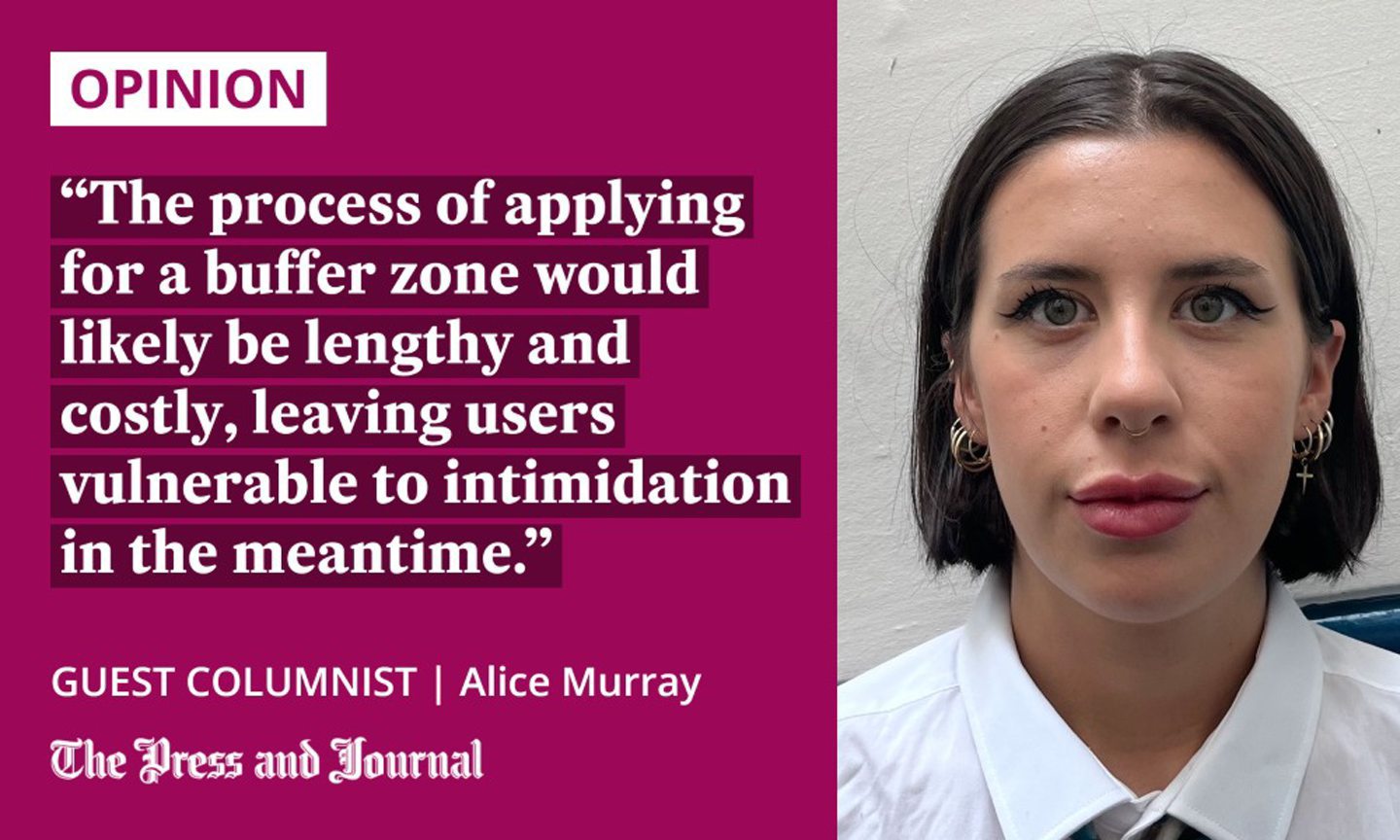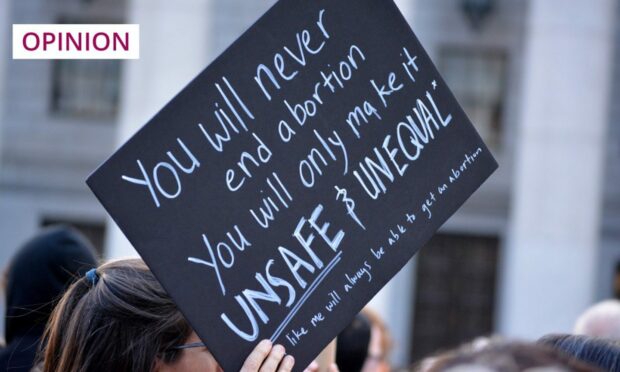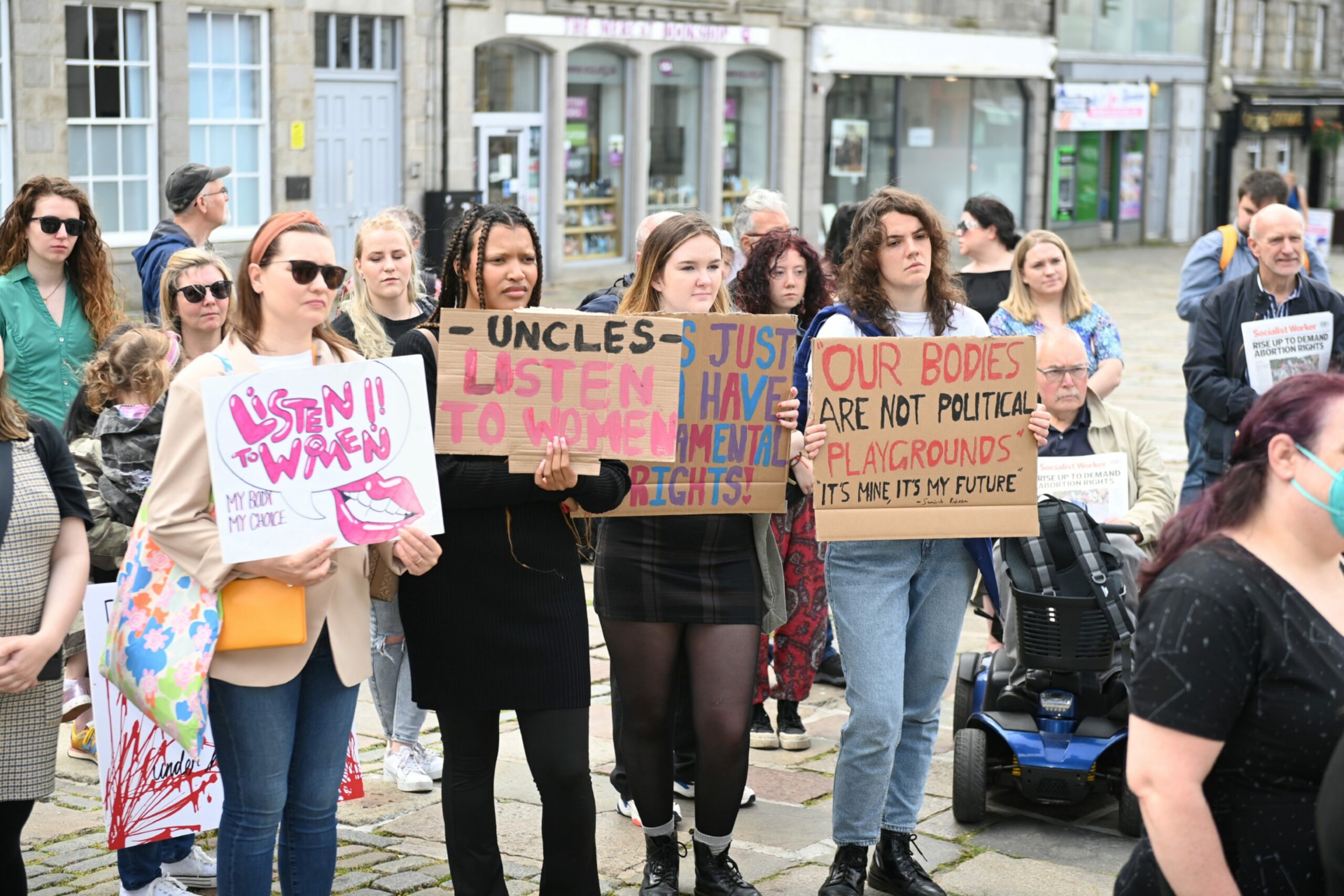This month, the consultation period for Gillian Mackay’s harassment-free buffer zones for abortion clinics drew to a close.
The consultation received over 12,000 responses, one of the highest numbers in Scottish Parliament history.
We are aware that opposers of the Back Off Scotland campaign – mainly anti-choice groups – will likely take issue with the proposed law, which has the intention to protect users and staff from anti-abortion harassment when entering hospitals and clinics.
However, I was disappointed to hear that, last week, the board secretary of NHS Grampian suggested a blanket buffer zone across Scotland may not be appropriate, and that an “opt-in” method may be more suitable.

On Tuesday, NHS Grampian appeared to have taken a U-turn on this stance and has now expressed full support of a blanket ban, which is positive to hear. However, the health board’s original reasoning for not supporting national legislation shows a simple lack of awareness of the issue.
Since co-founding Back Off Scotland in 2020, I have been made aware of anti-choice protests across seven clinics in Scotland, in Glasgow, Edinburgh, Dundee, Falkirk and Aberdeen.
These are the clinics that have been made known to us through testimonies from patients and staff, or through photographs and videos from those passing by. I do not doubt that there are other protests at hospitals that we have not yet been made aware of, including one-off, inconsistent pickets that are harder to track.
This is one of the reasons why we know that blanket legislation is the only effective solution to this problem.
Harassment-free healthcare should not be a postcode lottery
NHS Grampian voiced concerns that a blanket ban would encourage protestors to target hospitals that they currently do not stand outside, as a form of retaliation against the new legislation.
The process of applying for a buffer zone would likely be lengthy and costly, leaving users vulnerable to intimidation in the meantime
There are various reasons why Back Off Scotland strongly supports a blanket ban, the main and perhaps most important one being that access to harassment-free healthcare should not be a postcode lottery. Inconsistent buffer zones across Scotland would create further inequalities for patients, with a guarantee of protection from harassment being based only on what health board they fall under.
Introducing buffer zones only to the clinics that have recorded incidents creates a strong chance that protestors would move to the next health board that doesn’t yet have protection in place. The process of applying for a buffer zone would likely be lengthy and costly, leaving users vulnerable to intimidation in the meantime.
So, whilst not all hospitals across Scotland have recorded instances of anti-choice protests, I hope that NHS Grampian can now see the need for a preventative approach rather than a reactive one, and legislation that protects all patients, regardless of where they live.
Alice Murray is campaign coordinator and spokesperson for Back Off Scotland


Conversation